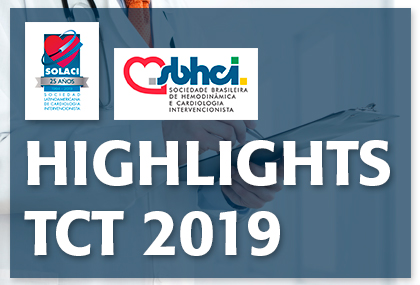Courtesy of SBHCI.
The aim of this work was to assess the contemporary outcomes of mitral valve-in-valve using Sapien 3 prostheses, see the differences between trasapical and transseptal access, and establish 1-year mortality predictors.

Researchers analyzed retrospectively the data from the Society of Thoracic Surgeons [STS]/American College of Cardiology TVT Registry, which included 1576 patients who had undergone this procedure in 271 sites. Access was transseptal in most cases (n = 1326) and transapical in a few (n = 203).
This treatment was associated with high success rates (97.1% for transseptal access patients and 94.5% for transapical access patients), few complications, and much lower mortality rates at 30 days (5% for transseptal access patients and 8% for transapical access patients) than expected based on the STS score.
Most patients experienced a significant improvement in their quality of life at 30 days, which prevailed at 1 year.
Courtesy of SBHCI.
Link to the SBHCI publication HERE
Original Title: Mitral Valve-in-Valve: 1-Year Outcomes of Transcatheter Mitral Valve Replacement for Degenerated Mitral Bioprotheses.
Author of the original article: Mayra Guerrero.
Get the latest scientific articles on interventional cardiologySubscribe to our weekly newsletter
We are interested in your opinion. Please, leave your comments, thoughts, questions, etc., below. They will be most welcome.




